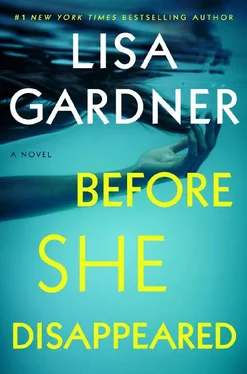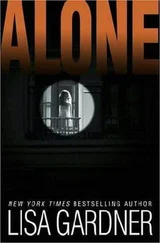The moment we appear, however, she pulls herself away from the stove and produces a pot of coffee. She doesn’t ask, but pours out two mugs, handing one to each of us. Having just consumed my body weight in caffeine, I’m tempted to wave off, but the look on her face stops me.
Stoic but welcoming. She is going through her steps, just as earlier today, I did mine.
As if reading my mind, Lotham murmurs beside me: “Take it. It’s a Haitian thing. Drink up.”
I take the mug, thanking her profusely. Given she hadn’t offered me coffee the first time I appeared, I appreciate that I’ve now risen in her esteem, while already wondering how long that will last.
The living area is too small for four, especially when one of them is supersized. Lotham takes the hint. He downs his mug, then disappears back to the second-floor landing, where I can soon hear him yapping away on the phone.
Emmanuel remains with me, his hands fidgeting in front of him.
“What would you like to see?” he asks at last.
Guerline moves away from me in the tiny space to throw more chicken into the skillet. More hissing and crackling.
“Walk me through the living arrangements.”
Emmanuel shows me the doorway leading to the single bedroom, which belongs to his aunt. Across from it is a cramped bathroom with a single vanity, toilet, and tub-shower combo. There is a mirrored medicine cabinet above the sink, a cheap shelving unit over the toilet. Shared space is cluttered space, which leaves me with much to sort out.
For now, I follow Emmanuel back to the family room. He gestures to the couch. “For LiLi,” he explains. Then to the floor. “For me.” A nightstand next to the sofa. “For my sister.” Followed by a dresser wedged next to the TV stand, then the lowest shelf of the entertainment unit, which is lined with books. “Also for my sister.”
That leaves two pieces of furniture, which must be Emmanuel’s.
It’s not a large search area. But it’s a lot to process, given the riot of personal possessions, family photos, and miscellaneous knickknacks. It’s like peering into a dense forest, then slowly trying to pick out a single leaf.
I take a seat on the sofa, then stand up again. “Where did your sister sit?” I ask Emmanuel. “Everyone has their spot.”
He gestures to the end, closest to the wall, where an oversized ceramic lamp tops the nightstand, excellent lighting for a serious reader.
“How did she sit?” I ask Emmanuel next. “Straight up, sideways, curled up? Can you show me?”
Emmanuel moves to the couch. He appears to consider the matter, then settles himself into the cushions, striking a pose. Sideways, curled up. Again, closer to the lighting.
Emmanuel bounces up. I nod in his direction as I take over Angelique’s position on the sofa. Then, for a long while, I don’t do anything at all. I just sit there and try to see what Angelique would see. Not rows of clutter, but pieces of memory. A fifteen-year-old girl, her family split between this country and the island she used to call home.
Emmanuel drifts into the kitchen, taking a seat at the kitchen table, where his heavily stickered laptop is up and running. Doing homework or updating his sister’s digital memorial or monitoring her virtual high school? I wonder what his friends think. If he has anyone he can talk to.
I refocus my eyes on the wall ahead of me. Eventually I get up. I open each dresser drawer and work my way through. It feels intrusive, pawing through someone’s piles of clothes. Having the family in the same room doesn’t help. I keep my movements brisk and my attention focused. It’s hard enough to do this once; I don’t want to have to repeat.
I don’t stumble upon any hidden notes, photos, diaries. I feel out each drawer for false bottoms, then peek behind the dresser itself. There are routine places, contraband 101. Items tucked under floorboards, taped beneath shelves. Under this object, behind this piece of furniture.
I take down the framed photo of Angelique’s mom and, with my back to the kitchen, delicately dismantle it. My efforts are rewarded by the discovery of a scrap of thick white paper. It’s covered by a child’s crayon drawing of a heart and flowers. Written across the top in large, looping script are the words Mwen renmen ou .
I don’t have to know Kreyòl to guess it reads I love you .
I return the note to its place behind the photo, feeling even more intrusive. I wander the bookshelves, the makeshift altar, the riot of green houseplants. I worked a missing persons case once where a thumb drive of illicit photos was slipped inside the pot of a fake ficus tree. These plants involve moist loamy soil, however. And none appear recently disturbed.
I move to the bathroom, where I check the medicine cabinet and beauty products littering the shelves above the toilet. I shake aerosol cans for fake bottoms. Open up makeup containers just in case. There is nothing in the handle of the hairbrush, taped inside the toilet tank, or bolted to the underside of the sink.
I account for the wooden baseboards, then check the doorframe, before emptying out the contents beneath the sink. Lot of cleaners, toilet paper, and feminine hygiene products. Given that a classic travel hack is to hide cash inside sanitary pads or tampon wrappers, I pull out every item in the boxes. When I look up, Detective Lotham has returned and is shaking his head at me. I shrug, get back to it.
Other classic hiding spots. Inside the freezer. Inside the door of the freezer. Tucked between wall cabinets, or behind crown molding. I once found a stash of dope inside a vacuum cleaner. Turned out to belong to the mother’s boyfriend and had nothing to do with her son’s disappearance, but he was pissed at me for months. And yes, my relationship with the entire family went downhill from there.
I eventually discovered the body of the nine-year-old locked in the trunk of an abandoned car on his grandfather’s property. The murder trial is due to start sometime next year.
I return to the living area, confront the couch. I take it apart cushion by cushion. Fortunately, it doesn’t include a sofa bed, so I don’t have to rearrange the entire room.
Then I return to my perch at the end of the sofa, and resume thinking like a fifteen-year-old girl. This is where I watch TV, surf my phone, hang with my family. This is where I stay up late, tuck into bed, confront each morning. In this entire apartment, this corner of the couch, this nightstand, that bureau, are mine alone. Slivers of privacy in an arrangement where my younger brother is also living, sleeping, waking right beside me.
And maybe I don’t mind. I protected my baby brother from our father. I led him from our collapsing house. Even now, I have promised us both a better future.
But maybe I met someone? Or someone found me?
Maybe, for a moment, I wanted my own dream, my own secret, my own life. But how? In a place this small, in an apartment this crowded, where even my computer is shared . . .
I leave the photos and inspect the row of books. I take down each one, reading the title, fluffing the pages. A few are in French, but most are English. None of them are books that I understand. Apparently Angelique liked to read everything from bios on Madame Curie to Elizabeth Blackwell. I flip through an anatomy book where I discover inserted sheets from Angelique’s sketch pad, incredibly realistic renderings of skeletal systems and muscle groups. She was clearly a gifted artist, at least to my untrained eye.
I give up on that mission and return to the couch. It’s already been more than an hour. The chicken is done and currently warming in the oven. If I wasn’t intruding before, I am now. Guerline has joined her nephew at the table, both of them clearly anxious. I should leave them so they can finally collapse in peace.
Читать дальше












